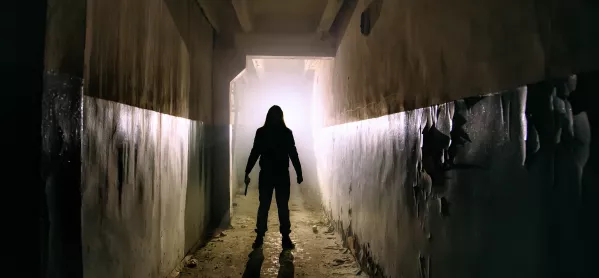- Home
- Tackle knife crime by reducing exclusions, say MPs
Tackle knife crime by reducing exclusions, say MPs

The school system urgently needs overhauling to “break the link between school exclusions and knife crime”, MPs are warning today.
The All-Party Parliamentary Group (APPG) on Knife Crime also says, in a report published today, that there is a “disturbing correlation” between children excluded from school and those involved in ”county lines” gang exploitation.
Suggestions of a link between exclusions and knife crime have been disputed by headteachers’ leaders, as well as Ofsted chief inspector Amanda Spielman and former education secretary Damian Hinds, who defended schools and headteachers against claims they were partly to blame for the rise in knife crime.
Quick read: Police link off-rolling to knife crime
DfE: Hinds defends heads over exclusions and knife crime link claims
Opinion: We need a reality check about exclusions
But chair of the APPG Sarah Jones MP today said excluded children were “easy pickings” for criminal gangs looking to exploit vulnerable children who “literally have nowhere to go“.
Vulnerable pupils at risk from gangs
The APPG cites DfE figures, which show 7,900 permanent exclusions in 2017-18, a 70 per cent increase since 2012, and says its own research reveals that a third of local authorities in England do not have spaces in their pupil-referral units (PRUs) for excluded children.
It says that where children do find places, they are sometimes only taught for a couple of hours each day, with a restricted curriculum of just English and maths.
Javed Khan, chief executive of charity Barnardo’s, who contributed to the report, said alternative education provision must be “full-time, high-quality, and properly resourced”.
He said: ”With PRUs regarded as a recruiting ground for criminal gangs, it’s no surprise children taught there are vulnerable to involvement in drugs and violent crime.”
Today’s report highlights how some schools are excluding pupils because they are struggling to find the resources to support children and manage their behaviour, and says that schools are “increasingly being too hasty in excluding children for minor misbehaviour due to the flawed school rankings system and Ofsted inspection regime”.
The APPG is also calling for mainstream schools to be more accountable for the children they exclude, and for the school rankings system to be “overhauled” so schools keep some accountability for the results of pupils they exclude.
This, it says, would mean schools trying to avoid exclusions by working with troubled and vulnerable children.
Exclusions ‘must be a last resort’
Ms Jones added: “Excluding children must be a last resort. But we hear all too often of schools stretched too thin to provide the wrap-around support struggling children need. Cash-strapped councils can’t manage the increasing number of excluded children in need of alternative education.
“Our fight against this knife crime epidemic must start from the principle that no child is left behind. Schools and local authorities must be supported by government to do this.”
But Julie McCulloch, director of policy at the Association of School and College Leaders (ASCL), said there was a need to be careful not to make school exclusions “the scapegoat for this issue”.
She said: “It is important to emphasise that the vast majority of school leaders only ever exclude a pupil as a last resort, and it is also the case that most pupil-referral units offer high-quality provision for young people in very challenging circumstances.
“The problems which must be resolved are the insufficiency in funding for schools and colleges and for wider support services, which makes it difficult to provide early intervention for pupils with challenging behaviour.”
Paul Whiteman, general secretary of the NAHT heads’ union, said there were 7,000 fewer neighbourhood police officers than there were in 2010, and blamed a lack of funding for essential public services as being “the biggest barrier to keeping young people safe”.
A government spokesperson said: “The issues surrounding knife crime and poor behaviour in schools are complicated and multi-faceted. Simple causal links between exclusions and crime cannot be drawn.
“We are clear that permanent exclusion should only be used as a last resort and exclusion from school must not mean exclusion from education. Furthermore, we must be just as ambitious for young people in alternative provision as we are for those in mainstream schools, and we are taking a range of actions to drive up the quality of those settings.”
Keep reading for just £1 per month
You've reached your limit of free articles this month. Subscribe for £1 per month for three months and get:
- Unlimited access to all Tes magazine content
- Exclusive subscriber-only stories
- Award-winning email newsletters



